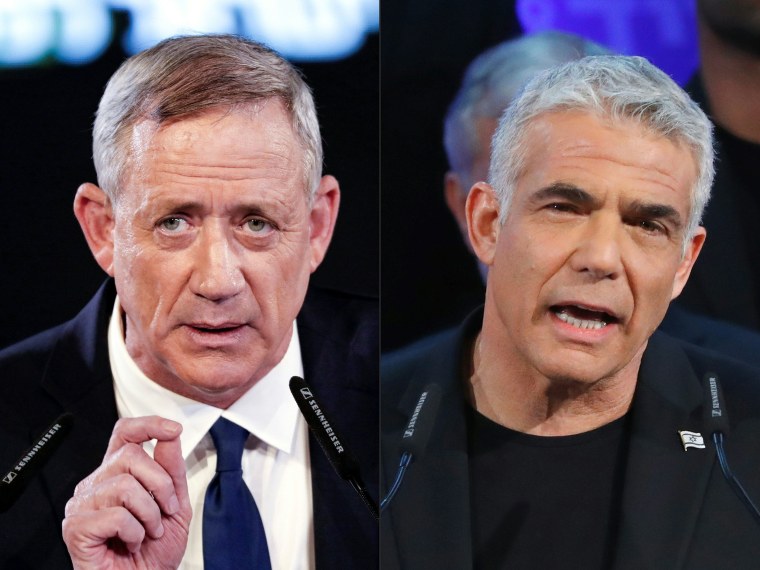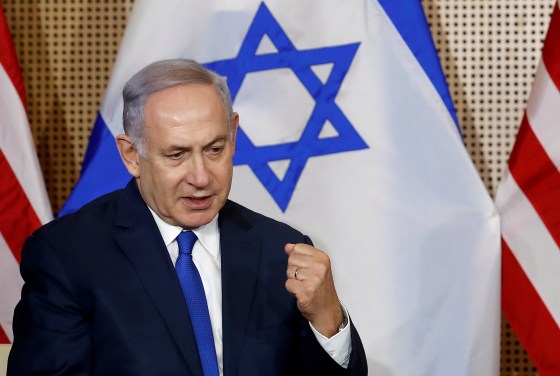JERUSALEM — Israeli Prime Minister Benjamin Netanyahu has forged an election alliance with two far-right parties in a bid to unify his hard-line bloc ahead of April elections.
His strongest challengers responded by uniting Thursday, a dramatic turn in a race Netanyahu's Likud party has been predicted to win easily.
On Wednesday, Likud announced it would reserve the 28th spot on its parliamentary list for the pro-settler Jewish Home party and grant it two Cabinet ministries in a future government if it merges with the extremist Jewish Power party.
Jewish Power is comprised of hard-line religious nationalists who have cast themselves as successors to the banned Kahanist movement, which dreamed of turning Israel into a Jewish theocracy and advocated forced removal of Palestinians.
Among the prominent figures in the joint Jewish Home-Jewish Power list are Bezalel Smotrich, a self-avowed "proud homophobe," Itamar Ben Gvir, an attorney who has made a career defending radical Israeli settlers implicated in West Bank violence, and Benzi Gopstein, leader of an extremist anti-assimilation group whose Twitter handle translates to "Kahane was right."
The late American-born Rabbi Meir Kahane's Jewish Defense League is considered a terrorist organization by the FBI.

Kahane served one term in the Knesset in the 1980s as head of the Kach party. It also called for a ban on intermarriage between Israeli Jews and Arabs.
Kahane's movement was subsequently banned from Israeli politics as racist. He was assassinated in 1990 in New York by an Egyptian-born American.
Netanyahu, 69, has been in power for the past decade. He is embroiled in multiple corruption allegations and faces a potential impending indictment, but denies any wrongdoing. Netanyahu also served as prime minister from 1996 to 1999.
Israelis vote for party lists of candidates for seats in the 120-member Parliament.
Recent polls project Likud winning about 30 seats, while Jewish Home and Jewish Power may not have enough support to enter Parliament on their own in the April 9 election. Together, the two small parties would likely cross the electoral threshold and capture several parliamentary seats.
Benny Gantz, a former army chief who is Netanyahu's main challenger, criticized the prime minister's courting of extremists. His Israeli Resilience party said: "Netanyahu lost touch with his Zionism and with his dignity."
Gantz and Yair Lapid, head of the Yesh Atid party, announced Thursday that they were joining forces. In a statement, the two centrists said they were "motivated by national responsibility."
Under their unity arrangement, the two agreed to a rotation leadership should they come to power under which Gantz would first serve as prime minister and would then be replaced by Lapid after two and a half years.
The new party would "bring forth a cadre of security and social leaders to ensure Israel's security and to reconnect its people and heal the divide within Israeli society," they said, in a dig at Netanyahu.

Even if their joint list surpasses Likud at the ballot box, it is not guaranteed to form the next government unless it can garner a parliamentary majority by forming a collation with other parties. But the dramatic merger seems enough to make the election a real fight for Netanyahu.
"For the first time since 2009, we have a competitive race for the premiership and this is the result of the emergence of this new centrist force," said Yohanan Plesner, a former lawmaker and president of the non-partisan Israel Democracy Institute.


